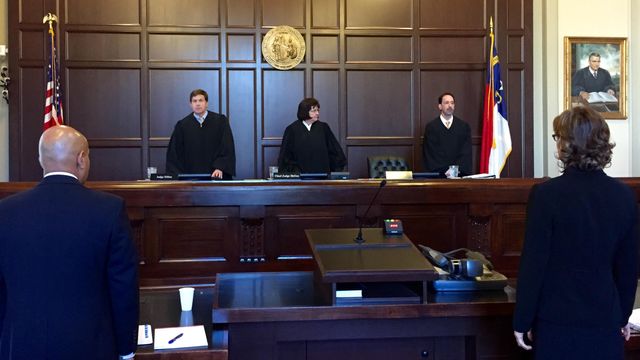Eugenics compensation law challenged in court
Attorneys for families of three eugenics victims told the N.C. Court of Appeals Monday that the state's compensation program is too restrictive.
Posted — UpdatedFrom the 1930s through the 1970s, more than 7,600 North Carolinians were forcibly sterilized under the state's eugenics program. Many were intellectually or developmentally disabled. Others were juvenile delinquents, children of parents addicted to drugs or alcohol or simply from poor families. African-American women fared worst, making up 40 percent of those involuntarily sterilized.
In 2001, then-Gov. Mike Easley issued a historic apology to the victims of the program. In the following years, a statewide task force looked into how best to compensate them. But it wasn't until 2013 that state lawmakers finally enacted a compensation program, setting aside $10 million to be shared among the remaining victims.
The legislation included a cutoff date. To be eligible, victims must have been alive on June 30, 2013.
Attorney Elizabeth Haddix says that date is arbitrary and unfair to the heirs of victims who have passed away in the intervening years.
Haddix, of the University of North Carolina Center for Civil Rights, represents the estates of Mary Lucille Hughes, Kay Frances Redmond and Tommie Junior Smith. All three were recognized victims of the program who died before the 2013 deadline.
"They were people who witnessed the task force meetings concerning the eugenics program, who heard Gov. Easley’s apology and thought, 'I’m finally getting – you know, the violation of me, of my body, of my right is getting – recognized,'" Haddix argued. "And they died, and they’re not included in the restitution program, even though their heirs were encouraged to file claims."
Haddix also argued that the law as it stands violates the state constitution's guarantee of equal protection because it sets up two classes of heirs.
Under the law, the heirs of a victim who was alive on the cutoff date could continue to pursue a claim even if the victim subsequently died, but the estate of a victim who died before that date could not.
"Because the state has already deemed heirs worthy – some heirs – worthy of restitution, you have to look at the heirs that they carved out," she argued. "Those are the heirs of the people who did not have the good fortune to live until July 1 of 2013."
Haddix asked the judges to strike out the clause in the law setting the cutoff date. Special Deputy Attorney General Amar Majmundar urged them not to, arguing that state lawmakers clearly intended to compensate living individuals who were forcibly sterilized.
"This is not about the heirs," Majmundar argued. "There is nothing ambiguous about these statutes. The General Assembly wanted to pay money to living victims – as they should have, as is right."
While Haddix argued that the families had, in fact, suffered a great deal and were deprived of "unborn" relatives by the state's action, Majmundar insisted the law was intended to be much more limited.
"It’s not to suggest that multitudes of people weren’t harmed by what I think everyone in this courtroom can agree is an indelible and ugly mark in the face of our state’s history," he said. "Many, many, many people were impacted in one way or another, and I’m not sure there’s any way the General Assembly can do anything to address the way all these people were impacted.
"They passed legislation specifically to say to these victims, 'You have suffered a unique harm, a harm that nobody else has suffered in this state. We want to take what small measure we can to compensate you,'" he continued. "That’s what they’ve done with this statute. It is not the exclusion of everybody else. Rather, we have limited means, and we want to do what we can to rectify at least a portion of that.
"These folks have not suffered that fate," Majmundar said of the heirs. "Not to say that they haven’t suffered something, but not that fate, not that fundamental right."
He also responded that June 30, 2013, was not a random date, arguing that it was intended to coincide with the beginning of the fiscal year of the budget in which the compensation legislation was included.
Haddix pointed out that few of the 7,600 victims have actually been compensated. Only about 225 claims have been approved so far by the Industrial Commission, she said. About 500 have been denied, and just a handful of those denials have been appealed.
The appellate panel of Judges Linda McGee, Chris Dillon and Mark Davis are not expected to issue a ruling on the cases for several weeks.
• Credits
Copyright 2024 by Capitol Broadcasting Company. All rights reserved. This material may not be published, broadcast, rewritten or redistributed.






